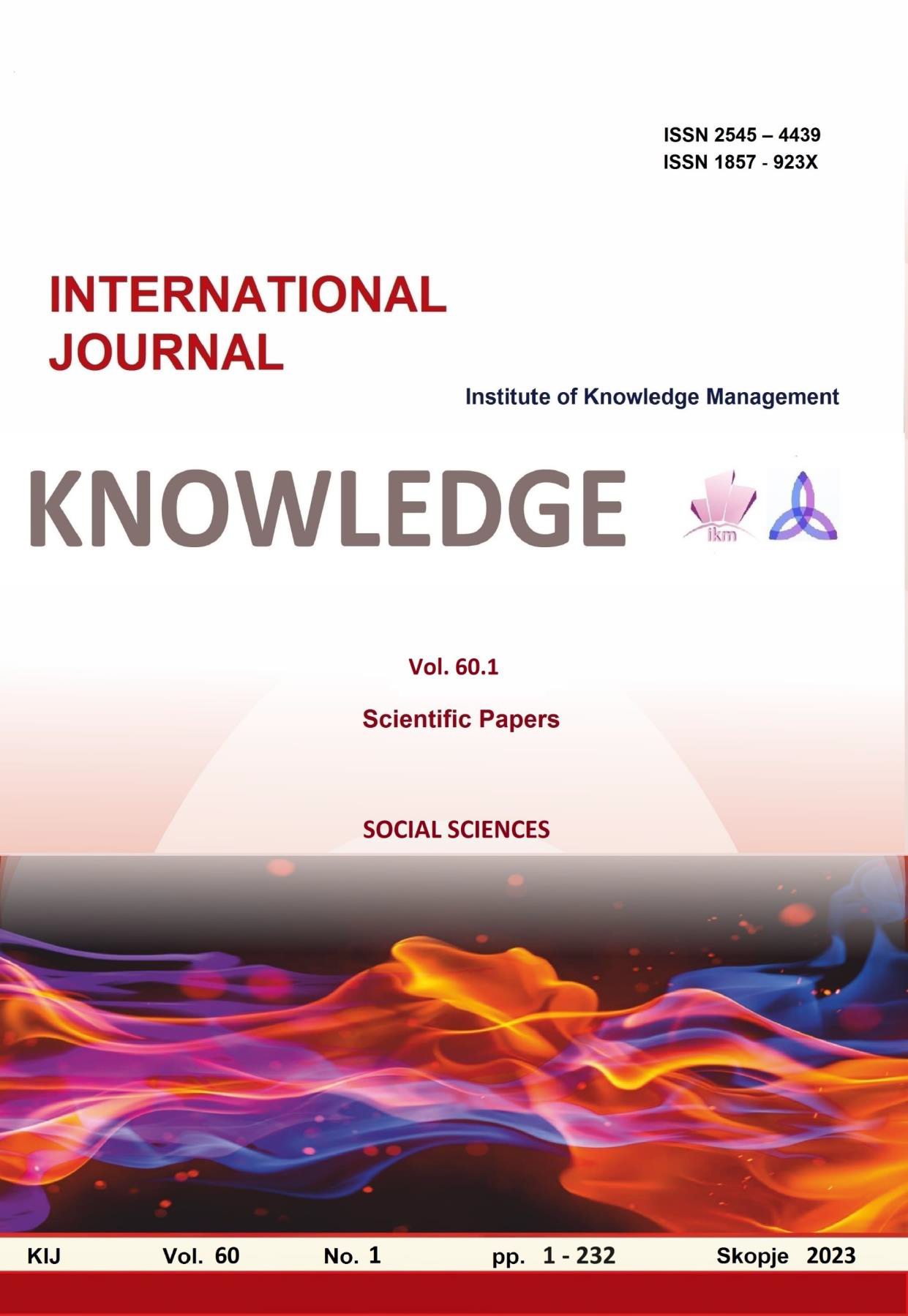HUMAN RESOURCE MANAGEMENT BASED ON BASIC SOCIO-DEMOGRAPHIC CHARACTERISTICS AND ABILITY TO CONTROL NEGATIVE EXPERIENCES AT WORK AMONG YOUNGER EMPLOYEES
HUMAN RESOURCE MANAGEMENT BASED ON BASIC SOCIO-DEMOGRAPHIC CHARACTERISTICS AND ABILITY TO CONTROL NEGATIVE EXPERIENCES AT WORK AMONG YOUNGER EMPLOYEES
Author(s): Saša ČekrlijaSubject(s): Social Sciences, Psychology, Social psychology and group interaction, Organizational Psychology
Published by: Scientific Institute of Management and Knowledge
Keywords: socio-demographic variables;negative experiences at work;human resource management
Summary/Abstract: Studies have shown that personality traits (Welbourne et al., 2020) and socio-demographic characteristics (Marinaccio et al., 2013) can significantly affect an individual’s ability to manage negative experiences at work. Negative experiences at work represent a major problem with multiple negative impacts on various aspects of the workplace. It directly influences employees’ self-perception, the company’s reputation, and diminishes their motivation to strive for the company’s objectives (Glambek et al., 2015; Van Dick & Liang, 2018). Consequently, negative experiences at work also pose a threat to the company’s smooth operations (Rasool et al., 2021). From the perspective of human resource management, it is essential to address such issues promptly if they already exist within the company. Moreover, preventing negative experiences at work through effective employee selection, educational processes, and the development of appropriate team-building strategies is highly desirable (Hussain et al., 2018; Alnoor et al., 2021). The present research aims to investigate the relationship between the ability to manage negative experiences at work among younger employees. The sample included 81 young employees (41 female) aged between 18 and 30 years. Socio-demographic variables (gender, age, marital status, educational status, and family status) were collected using a short questionnaire. Additionally, three aspects of the ability to control negative experiences at work (personal humiliation, professional humiliation, and professional obstructions) were assessed using a shortened version of the Negative Acts Questionnaire (Vukelić, 2015). Firstly, descriptive statistics for the indicators of the ability to manage negative experiences at work were examined. Subsequently, their relationships with socio-demographic values were analyzed using multiple regression analysis. Three multiple regression analyses were performed, with socio-demographic variables as predictors, and personal humiliation, professional humiliation, and professional obstructions as dependent variables. The results indicated that only gender (β=.35; p<.01) and material status (β=-.28; p<.01 β=.35; p<.01) significantly contributed to explaining the ability to control professional obstructions (R2=.22; F(5,75)=4.127; p<.01). Women and those with lower material status demonstrated potentially higher resilience in managing professional obstructions. Other socio-demographic variables did not show a significant impact on the ability to manage negative experiences among younger employees. Overall, the findings revealed some differences when compared to studies conducted with older employees and individuals with more diverse educational backgrounds (Sime et al., 2022; La Torre et al. 2018). The practical implications of these findings are discussed from the perspective of human resource management.
Journal: Knowledge - International Journal
- Issue Year: 60/2023
- Issue No: 1
- Page Range: 89-94
- Page Count: 6
- Language: English

